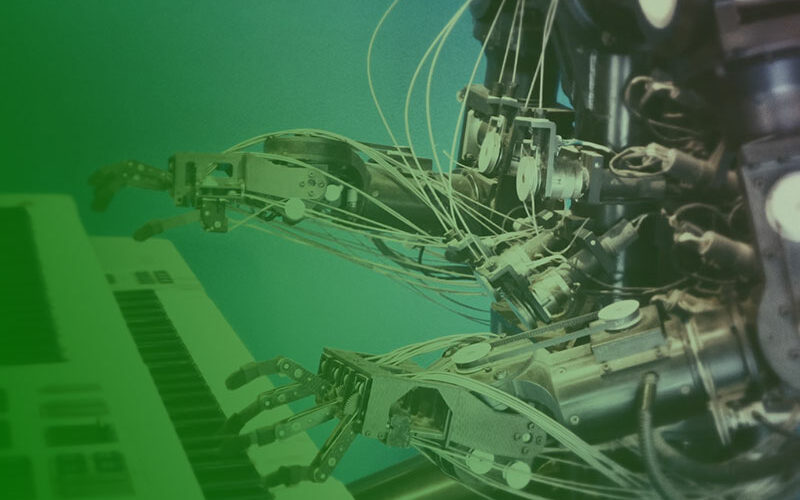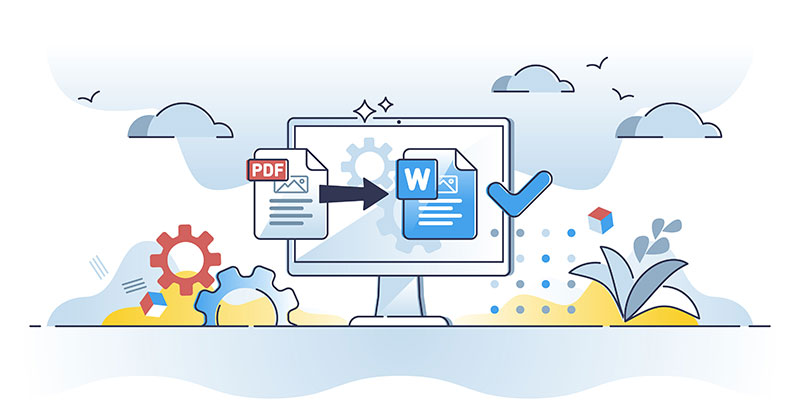The Role of AI in IT Outsourcing

AI is transforming IT outsourcing, streamlining operations, and driving innovation. This article explores AI’s profound impact on outsourcing and outlines the advantages and challenges of embracing this technology.
We’ll unveil how AI is redefining industry standards and what organizations must consider to integrate it into their outsourcing strategies successfully.
Enhancing IT Outsourcing with AI
Incorporating AI into IT outsourcing brings order and coherence, enhancing conventional outsourcing models.
AI is a pillar for groundbreaking outsourced services, steering the industry towards a tactical methodology for optimizing operations.
Organizations leveraging AI gain significant benefits, such as improved speed, precision, and cost savings, positioning them at the forefront of business.
AI brings sophisticated unpredictability to problem-solving and decision-making processes, making operations more dynamic and adaptable.
Moreover, AI’s integration can facilitate educational endeavors, such as learning how to code a game in Python, amplifying human capabilities by automating tasks, enhancing coding skills, and enabling sophisticated analytics – transcending mere labor replacement.
Robotic Process Automation (RPA) Boosts Efficiency
RPA is a productivity powerhouse in IT outsourcing. By automating repetitive tasks like data entry and HR operations, RPA frees up businesses to focus on strategic work. Combining AI with RPA streamlines routine processes, giving outsourcing providers a performance and cost-saving edge.
Businesses can use outside firms to get special skills for using RPA tools quickly and on a large scale. This helps them save money and lets them use the firms’ systems to set up automation better.
Using AI for Better Data Analytics
AI has made data analytics much more useful by turning large amounts of raw data into helpful information. With AI analytics, companies can now predict future patterns, find risks, and see chances to make more money.
In software engineering, AI tools play a big role by carefully checking code, suggesting fixes, and creating parts to speed up development. AI is used in many fields for forecasting and better customer service.
Using NLP for Great Customer Experience
To give customers the best service, businesses use Artificial Intelligence (AI) and Natural Language Processing (NLP). These help outsourced customer support give better service that satisfies customers more. AI, like chatbots and automated systems, manages questions well using data analysis. It also organizes requests by priority and keeps support quality consistent.
One great example is KLM Royal Dutch Airlines, which uses an AI chatbot that quickly responds in multiple languages. This helps them meet each customer’s unique needs by providing multilingual support.
Overcoming the Challenges of Integrating AI
Bringing AI into IT outsourcing has some challenges. Companies need to change their systems and processes to merge AI with what they already have. To use AI fully, they must look at issues like scalability and ethical concerns.
Getting people with AI skills or making partnerships is key for dealing with complex AI algorithms and data structures. When innovating with AI, following ethical guidelines and protecting consumers is very important.
Addressing Ethical and Privacy Issues
In today’s digital world, keeping data private is crucial. When using AI for IT outsourcing, companies must have strong data rules that protect privacy and prevent customer data leaks. They must carefully follow laws like GDPR while ensuring AI systems handle customer information securely. Choosing an AI outsourcing partner requires checking their commitment to data security, legal compliance, and secure data transfer methods.
Here is the rewritten content with a 25% shorter length while retaining the HTML structure and following the given instructions:
Machine learning can spread bias if not balanced with ethics. Firms must ensure moral AI use. This needs input from coders, lawyers, and ethicists. They should make clear ethics rules and train workers on ethics.
Closing the Skills Gap
Training staff on AI is key to filling skill gaps. Companies should create a culture of constant AI education. This improves human-AI teamwork by helping workers utilize AI well.
As a result, this collaborative intelligence enhances human-AI synergy. It allows companies to grow staff skills for working alongside AI.
The Synergy of AI and Human Knowledge
IT outsourcing shows the value of human-AI collaboration. Just automating misses out on gains from humans and AI teaming up. People are vital for training AIs, interpreting outputs, and ensuring ethical use.
AI is good at dealing with lots of data, but humans are better at creative thinking and solving hard problems.
AI can’t work alone in these areas. Using AI with humans is perfect for things like software development —it makes things faster while using AI to help people.
Finding the Right Balance
Combining AI with human knowledge is critical. AI boosts work speed, but people make big strategy choices and consider ethics.
For customer service, AI helps with simple tasks using customer data. But people are needed for complex issues that require empathy.
Human judgment helps avoid AI bias and keeps diversity. It also upholds ethics. Explainable AI models show how decisions are made, building trust between businesses and AI companies.
Working as a Team
AI makes global teams cooperate better in IT outsourcing. It automates real-time communication flows. This changes how teams interact and work together efficiently.
AI aids customers by giving tailored support based on their unique needs. This boosts joint efforts.
Choosing the Right AI Outsourcing Partner
Picking the correct AI outsourcing partner is key. It could decide your AI projects’ outcomes. Thoroughly assess their tech skills, AI expertise, and alignment of values and goals.
Partners who deeply understand specific fields or data types, with a proven success record on similar projects, offer a significant advantage.
Progressive companies often do AI pilot projects to stay ahead – a hallmark of businesses that successfully outsource AI by choosing innovative partners in this field.
Evaluating Technical Skills and AI Capabilities
Assessing potential AI outsourcing partners’ technical abilities is crucial. Verify their expertise in AI technologies like machine learning frameworks, programming languages, and algorithms.
A solid tech foundation from an outsourcing partner is vital for implementing AI solutions successfully. They must have practical AI industry experience and can tailor services to your business needs.
Here is the rewritten content with a 25% reduced word count, following the given instructions, while preserving the HTML structure:
When choosing partners for outsourcing, consider their data-handling skills and infrastructure. Having access to data labeling tools shows competence. These technical abilities impact performance and outcomes.
Ensuring Cultural and Strategic Fit
Align culturally and strategically with an AI outsourcing partner. Share goals, principles, and approaches for a successful collaboration. Cultural differences affect workplace interactions, so evaluate the cultural fit.
The AI partner should be scalable and agile to meet your changing business needs. Clear communication channels ensure quick problem resolution and smooth cooperation.
- Laugh Out Loud: Comedy Apps Like iFunny - July 3, 2024
- How Startups Are Redefining Employee Skill Development with Micro-Learning - July 3, 2024
- Who Is the Data Controller or Processor for a Company - July 3, 2024








